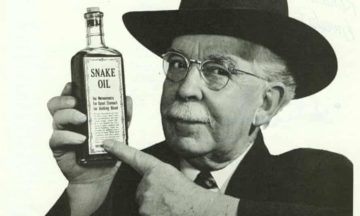Kathryn Hughes in The Guardian:
 At about the age of 18 months babies start to get sneaky. They hide food they don’t like and go in for bouts of fake crying. In other words, they have learned that reality, far from being set in stone, is something that can be performed, tinkered with or even made to disappear completely. This, suggests Aja Raden, is the great foundational moment of life, indeed of all our lives. From now on we spend our time tiptoeing along the boundary between true and false, with a dizzying sense of how little there is to choose between them.
At about the age of 18 months babies start to get sneaky. They hide food they don’t like and go in for bouts of fake crying. In other words, they have learned that reality, far from being set in stone, is something that can be performed, tinkered with or even made to disappear completely. This, suggests Aja Raden, is the great foundational moment of life, indeed of all our lives. From now on we spend our time tiptoeing along the boundary between true and false, with a dizzying sense of how little there is to choose between them.
From here Raden takes us on a whistle-stop tour of hoaxes and cons. She’s not talking here about little fibs, the grownup version of hiding your spinach under your plate, but rather the swaggery whoppers that are capable of bringing down a whole peer group. Something like the Bernie Madoff scandal, a long con that lasted three decades and involved a lot of very rich people believing a criminal when he promised to make them even richer, without explaining how. In effect, and on Madoff’s own eventual admission, he was running a $65bn pyramid scheme, which used the money from new investors to pay off the marks who had been in the game for longer. All fine and dandy until the day came when he ran out of fresh meat and the whole wonky structure came tumbling down.
Why on earth would anyone – especially smart, rich anyones – fall for such obvious nonsense? Raden explains that it’s because, in the grand scheme of things, it benefits us to take information on trust. If we felt obliged to test knowledge before believing it, most us would have to spend at least a decade of our adult lives satisfying ourselves that the Earth is indeed round (assuming our maths was even up to it). Raden isn’t suggesting for a moment that the Earth is actually flat, simply that we have learned to rely on collective intelligence and majority decisions as a way of shortcutting a lot of tedious grunt work. In the case of Madoff, investors believed that his scheme must be a Good Thing simply because so many other people, including CEOs and Hollywood stars, already thought it so.
More here.
